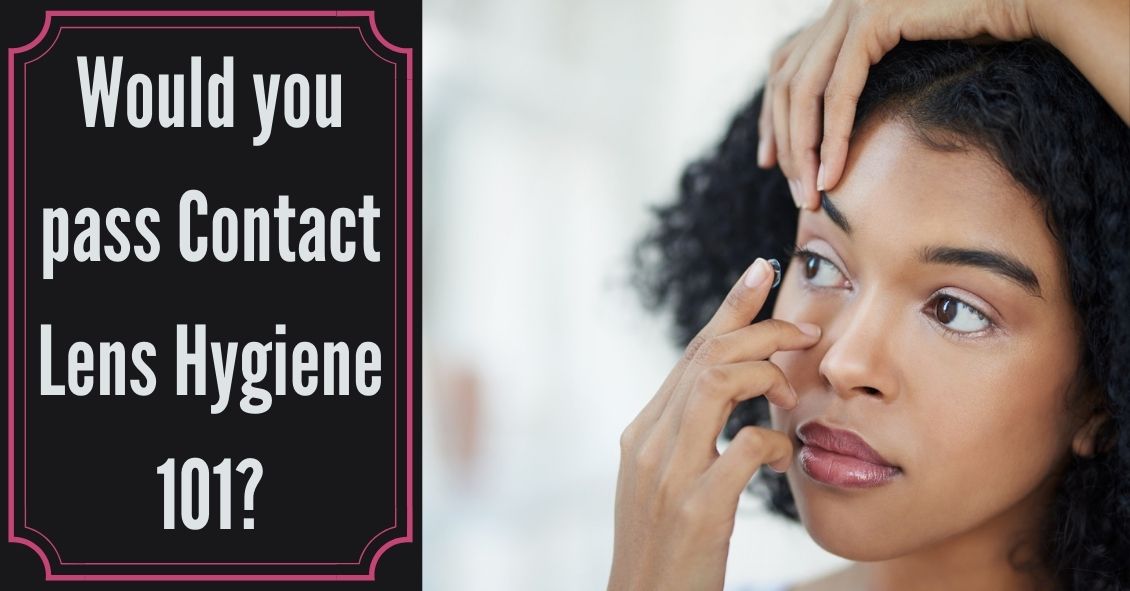Hygiene is critical to wearing your contact lenses safely.
Contact lenses can significantly improve your vision, but it’s essential to care for them properly to avoid potentially serious infections or other problems.
These recommendations will help extend the life of your contact lenses and keep your eyes safe and healthy.
Your lens insertion and removal routine
- Before you handle contacts, wash and rinse your hands with a mild soap.
- Make sure the soap doesn’t have perfumes, oils, or lotions. They can leave a film on your hands.
- Dry your hands with a clean, lint-free towel before touching your contacts.
- It’s a good idea to keep your fingernails short and smooth so you won't damage your lenses or scratch your eye when inserting or removing your contacts.
- Lightly rubbing your contact in the palm of your hand with a few drops of solution helps remove surface build-up.
- Rinse your lenses thoroughly with a recommended solution before soaking the contacts overnight in a multi-purpose solution that completely covers each lens.
- Store lenses in the proper lens storage case.
- Don't use tap water or saliva to wash or store contact lenses or lens cases.
- If you use hair spray, use it before you put in your contacts.
- Put on eye makeup after you put in your lenses. Take them out before you remove makeup.
- Always follow the recommended contact lens replacement and wearing schedule prescribed.
Your supplies
- Use doctor-recommended solution.
- Rub and rinse your contact lens case with sterile contact lens solution. Never use water.
- Clean the case after each use.
- Replace your contact lens case at least once every three months.
- Don’t “top off” solution. Use only fresh contact lens disinfecting solution in your case.
- Never mix fresh solution with the old or used solution.
- Change your contact lens solution according to the manufacturer's recommendations.
Your eye doctor
- Visit us yearly or as often as recommended.
- Ask us if you have questions about how to care for your contacts and case or if you are having any difficulties.
- Remove your contact lenses immediately if your eyes become irritated. Call us and let us know what’s going on.
- Call us if you have any sudden vision loss, blurred vision that doesn’t get better, light flashes, eye pain, infection, swelling, unusual redness, or irritation.
Wear your contacts safely
- Some contacts need special care and products. Always use the disinfecting solution, eye drops, and enzymatic cleaners your doctor recommends. Some eye products or eye drops aren’t safe for contact wearers.
- Saline solution and rewetting drops do not disinfect lenses.
- Use a rewetting solution or plain saline solution to keep your eyes moist.
- Don’t wear your contacts when you go swimming in a pool or at the beach.
- Don't sleep in your contact lenses unless prescribed by your eye doctor.
- Don’t clean or store your contacts in water.
- See us for your regularly scheduled contact lens and eye examination.
- If you think you’ll have trouble remembering when to change your lenses, ask for a chart to track your schedule or make one for your needs.
Be sure to call us if you have any questions about caring for your contact lenses or if your eyes are having problems.



